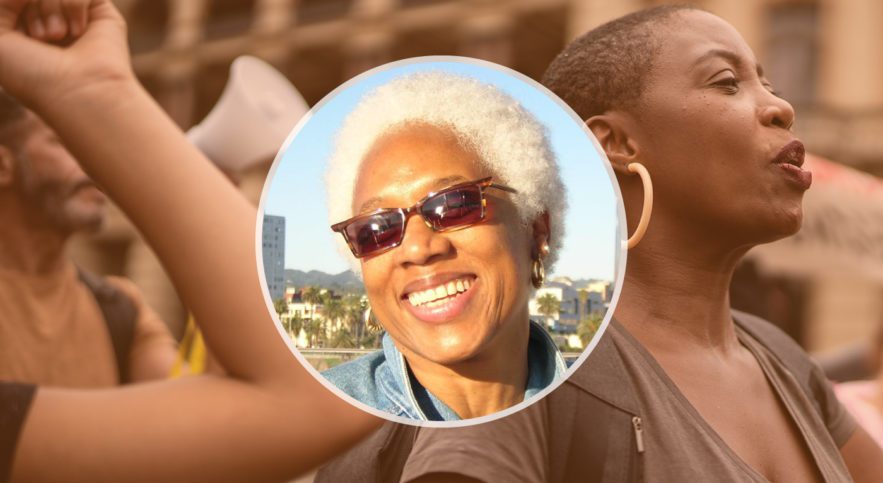When she was young, Norma Mtume wanted to be an educator. She dreamed of teaching her favorite subjects: math and physical education. When she got to college, however, she realized that there were social equations arithmetic would never be able to solve, and health disparities that dodgeball would never be able to cure. Instead of teaching in schools, she therefore dedicated her life to organizing in communities.
“I started going to Cal State LA right out of high school in 1967. And when I got there, I started to get involved with the civil rights movement, the Black Power movement, the women’s movement, and the anti-war movement,” says Mtume, who soon thereafter joined the Black Panther Party, a political organization whose founders wanted to challenge police brutality against the African American community—50 years before the modern Black Lives Matter movement. “When I got involved with the Black Panther Party, they were starting a free medical clinic in Los Angeles. I was barely 19, but because I was a physical education major, I had some knowledge in health science and kinesiology. So, I was put in charge of running the clinic.”
And so began a decades-long career of health care-focused community organizing and engagement, a highlight of which was the 1991 establishment of SHIELDS for Families, a Los Angeles nonprofit that Mtume co-founded in order to provide substance abuse treatment for new mothers with drug-exposed babies.
“At that time, there was an epidemic of children being born who were prenatally exposed to substances—primarily crack cocaine. At Martin Luther King Jr. Hospital in Los Angeles, there were more than 1,200 women a year delivering substance-exposed children,” says Mtume, who started SHIELDS for Families in a broken-down trailer on the hospital’s campus with just 14 staff and less than $500,000 in funding. Today, the organization employs more than 380 full-time staff, has an annual budget of more than $22 million, and serves more than 7,000 families per year with 39 programs across 16 different locations. In addition to substance use disorder treatment and prevention, programs encompass everything from housing and hunger relief to behavioral health and child welfare.
While she was serving as SHIELDS’ joint chief financial officer and chief operating officer—a position she held for nearly 24 years—Mtume determined that she wanted to learn as much about mental health as she knew about physical health. So, while she already had a bachelor’s degree in health sciences and a master’s degree in the same, she decided in 2005 to seek a second master’s degree in Marriage and Family Therapy from Pacific Oaks College. She graduated in 2008 with a focus in African American Family Studies, which at the time was a brand-new program specialization.
“I’ve been able to use the master’s that I acquired at Pacific Oaks in so many different ways,” says Mtume, who used her background in African American Family Studies to help educators create culturally competent curricula at UCLA’s David Geffen School of Medicine. “Some of the instructors were using really old materials that were demeaning and stigmatizing to people of color. I was able to work on a task force helping them review their entire curriculum to make sure it was culturally sensitive and responsive, and I attribute a lot of that work to what I learned at Pacific Oaks.”
Although she retired in 2014, Mtume continues to work as a community engagement consultant with universities and nonprofits across Los Angeles.
“I liken [community work] to the game ‘Mother, May I.’ You take three regular steps forward, but five giant steps backward,” she says. “More young people of color are able to get into universities these days, which is a good thing, but a lot of them are homeless or at risk of being homeless. They don’t have enough food to eat, and that’s heartbreaking to watch. That we’re not further along in our development as human beings—that there are still people in this country struggling to have adequate housing—is just off the chain.”
At 72, she’d like to pass the baton to a new generation of community advocates. But there’s too much to be done for anyone to sit on the sidelines.
“I’m passionate about people in our community having better health and more productive lives,” Mtume concludes. “How do you retire from a passion?”
Learn more about Pacific Oaks College
If you would like to learn more about the academic programs available at Pacific Oaks, fill out the form below to request more information, or you can apply today through our application portal.

